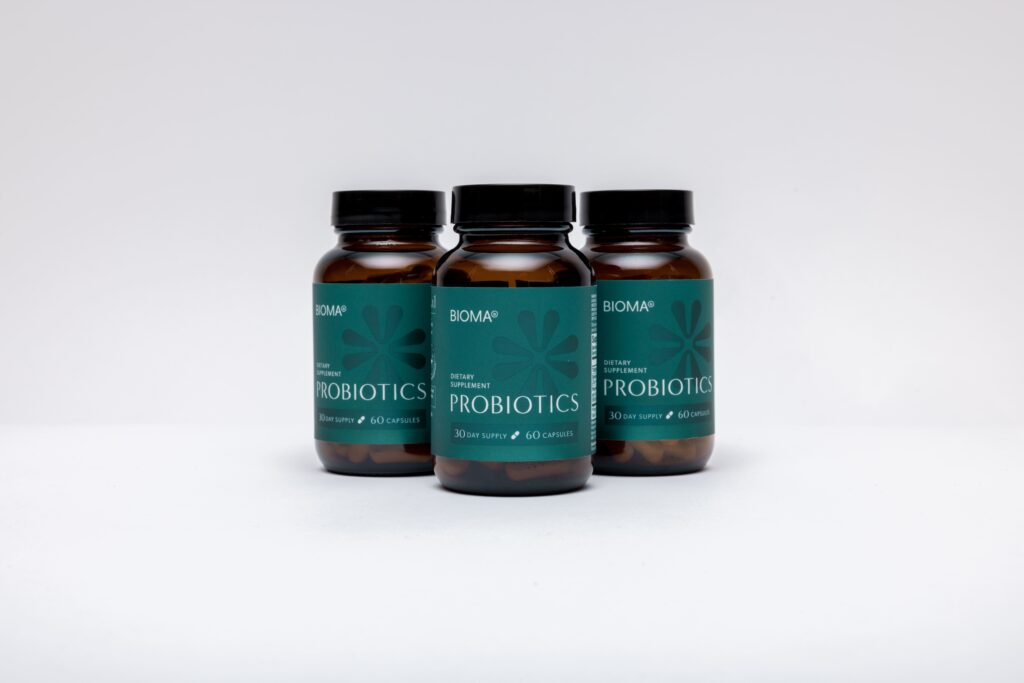Kefir Probiotic Benefits: How This Fermented Drink Supports Gut and Immune Health

Kefir has been consumed for centuries as a fermented dairy product known for its rich probiotic content. But beyond its creamy texture and tangy flavor, kefir is packed with beneficial bacteria and yeasts that support gut health, digestion, and immune function. As more people turn to probiotics for gut health, kefir has gained popularity as a natural source of live bacteria and symbiotic microorganisms that promote microbial balance in the digestive tract.
The Probiotic Power of Kefir
Kefir is produced by fermenting milk with kefir grains, which are clusters of bacteria and yeast that break down lactose and generate a diverse probiotic profile. Unlike yogurt, which primarily contains lactic acid bacteria, kefir provides a broader range of probiotic strains, including lactobacillus, bifidobacterium, and saccharomyces.
A study published in Frontiers in Microbiology found that kefir supports gut microbiota balance and enhances digestive tract function due to its fermentation process. By promoting beneficial bacteria and short-chain fatty acids, kefir contributes to better nutrient absorption and digestion.

Digestive Health Benefits
Many people struggle with digestive symptoms like bloating, gas, and constipation, often linked to an imbalanced gut microbiome. Kefir’s live bacteria help regulate the gut microbiota, improving lactose digestion and reducing symptoms of irritable bowel syndrome and inflammatory bowel disease.
- Improved lactose digestion – Thanks to its beta-galactosidase activity, kefir aids those with lactose intolerance, making it easier to digest than regular milk.
- Relief from chronic constipation – The probiotic content in kefir has been shown to improve gut motility, helping individuals with digestive symptoms.
- Potential for reducing gut inflammation – Kefir’s lactic acid bacteria contribute to microbiome balance, which may be beneficial for conditions like IBS and IBD.
A clinical study in Nutrients confirmed that kefir yogurt consumption enhanced gut microbiome diversity, reducing inflammation and improving digestive health.
Antibacterial and Antipathogenic Properties
Beyond digestion, kefir has demonstrated antimicrobial properties that help combat harmful bacteria such as e. coli, salmonella arizonae, and helicobacter pylori. The fermentation process enhances kefir’s anti-salmonella properties, reducing the growth of pathogenic bacteria in the gut.
- Inhibits harmful bacteria – Studies show that kefir grains produce antimicrobial compounds that slow the growth of salmonella typhimurium and other harmful microbes.
- Protects against h. pylori – Research suggests that probiotic fermented milk may reduce h. pylori colonization, lowering the risk of gastric infections.

Kefir and Blood Sugar Control
Kefir isn’t just for digestion—it may also play a role in blood sugar regulation. Emerging research suggests that kefir improves glycemic control, insulin sensitivity, and fasting blood sugar levels, making it beneficial for individuals with prediabetes and type 2 diabetes.
- Enhances insulin sensitivity – The probiotics in kefir support glucose metabolism, reducing insulin resistance.
- Lowers blood sugar spikes – Regular consumption may help maintain stable glucose levels.
- Improves lipid profile – A study in Diabetes Research and Clinical Practice found that kefir improved diabetes-related markers and lipid metabolism in patients with metabolic disorders.
Bone Health and Osteoporosis Prevention
Calcium is essential for strong bones, and kefir provides a bioavailable source of calcium, vitamin D, and vitamin K2, which are key for bone density and osteoporosis prevention. Postmenopausal women are at higher risk for bone loss due to estrogen deficiency, making nutrient-rich dairy products like kefir beneficial.
- Enhances calcium absorption – Kefir’s probiotics help improve calcium absorption, contributing to bone mass preservation.
- Supports bone microarchitecture – Kefir peptides may support bone health at a structural level.
Cholesterol and Blood Pressure Regulation
Kefir has been studied for its impact on heart health, cholesterol levels, and blood pressure regulation. Certain lactobacillus strains, such as lactobacillus plantarum ma2, produce kefiran, a polysaccharide that has been shown to lower ldl cholesterol and blood triglycerides.
- Supports lipid metabolism – Kefir may help regulate hyperlipidemia and improve overall cardiovascular risks.
- Enhances endothelial function – The exopolysaccharide content in kefir contributes to improved blood vessel health.

Immune System Support
Kefir’s immune system modulation makes it beneficial for those dealing with immune deficiencies, allergies, and viral infections. The probiotics and fermented foods in kefir help balance inflammatory responses, support intestinal immunity, and may even reduce histamine intolerance.
- Enhances microbiome balance – Kefir strengthens gut health, which is directly linked to immune resilience.
- Supports vitamin A absorption – A key nutrient for immune function and viral infection resistance.
Research published in Frontiers in Immunology highlights kefir’s role in gut microbiome and immune system balance, making it a valuable food for overall health.
Bioma Probiotics for Gut Health
Kefir provides beneficial bacteria, but for a more comprehensive and consistent probiotic boost, Bioma Probiotics offer a scientifically formulated blend of strains designed to support gut health, digestion, and immune function. If you’re looking for a way to restore balance and strengthen your microbiome, our probiotics provide:
- Diverse probiotic strains – Contains multiple clinically studied bacteria, ensuring broad-spectrum support.
- Improved digestion – Helps break down food efficiently, reducing bloating and discomfort.
- Microbiome balance – Supports a healthy gut environment by promoting good bacteria growth.
- Immune system reinforcement – A strong gut microbiome enhances immune response and resilience.
- Targeted support for antibiotic recovery – Replenishes beneficial bacteria lost during antibiotic use.
- Convenient daily supplementation – No preparation needed, unlike fermented foods like kefir.
For those who want a simple yet effective way to maintain gut health beyond diet alone, Bioma Probiotics provide a reliable and research-backed solution.

Conclusion
Kefir is a nutritional powerhouse with impressive benefits for gut health, immune function, and overall wellness. From aiding digestion to supporting bone health and blood sugar regulation, this fermented drink delivers a wide range of probiotics and essential nutrients.
Its antibacterial and antipathogenic properties help combat harmful bacteria, while its role in cholesterol and blood pressure regulation makes it a heart-healthy choice. Whether you’re looking to improve gut microbiota, reduce inflammation, or enhance immune resilience, kefir is a simple yet powerful addition to your diet.
For those seeking additional probiotic support, combining kefir with high-quality probiotic supplements like Bioma Probiotics can further enhance gut and immune health.
Related articles



